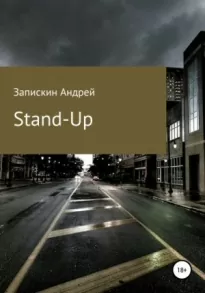RED SYMPHONY

- Автор: Dr. Landowsky
- Жанр: Старинная литература
Читать книгу "RED SYMPHONY"
R. - By the way, are you assuming that I am like the courtesan from
{p. 19} the "Arabian Nights," who used her imagination at night to save her life ... No, if you think that I am departing from the theme, then you are wrong. In order to reach that which we have taken as our aim I, if I am not to fail, must first of all enlighten you about the most important matters, while bearing in mind your general lack of acquaintance with that which I would call the "Higher Marxism." I dare not evade these explanations as I know well that such lack of knowledge exists in the Kremlin ... Permit me to continue.
G. - You may continue. But it is true that if all this were to be seen to be only a loss of time to excite the imagination, then this amusement will have a very sad epilogue. I have warned you.
R. - I continue as if I have heard nothing. Insofar as you are a scholastic with relation to Capital, and I want to awaken your inductive talents, I shall remind you of some very curious things. Notice with what penetration Marx comes to conclusions given the then existence of early British industry, concerning its consequences, i.e. the contemporary colossal industry: how he analyses it and criticizes; what a repulsive picture he gives of the manufacturer. In your imagination and that of the masses there arises the terrible picture of Capitalism in its human concretization: a fat-bellied manufacturer with a cigar in his mouth, as described by Marx, with self-satisfaction and anger throwing the wife and daughter of the worker onto the street. Is that not so? At the same time remember the moderation of Marx and his bourgeois orthodoxy when studying the question of money. In the problem of money there do not appear with him his famous contradictions. Finances do not exist for him as a thing of importance in itself; trade and the circulation of moneys are the results of the cursed system of Capitalistic production, which subjects them to itself and fully determines them. In the question of money Marx is a reactionary; to one's immense surprise he was one; bear in mind the "five-pointed star" like the Soviet one, which shines all over Europe, the star composed of the five Rothschild brothers with their banks, who possess colossal accumulations of wealth, the greatest ever known ... And so this fact, so colossal that it misled the imagination of the people of that epoch, passes unnoticed with Marx. Something strange ... Is that not so? It is possible that from this strange blindness of Marx there arises a phenomenon which is common to all future social revolutions. It is this: we can all confirm that when the masses take possession of a city or a country, then they always seem struck by a sort of superstitious fear of the banks and bankers. One had killed Kings, generals, bishops, policemen, priests and other representatives of the hated privileged classes; one robbed and burnt palaces, churches and even centres of science, but though the revolutions were economic-social, the lives of the bankers were respected, and as a result the magnificent buildings of the banks remained untouched ... According to my information, before I had been arrested, this continues even now ...
G. - Where?
R. - In Spain ... Don't you know it? As you ask me, so tell me now: Do you not find all this very strange? Think, the police ... I do not know, have you paid attention to the strange similarity which exists between the financial International and the proletarian International. I would say that one is the other side of the other, and the back side is the proletarian one as being more modern than the financial.
{p. 20} G. - Where do you see similarity in things so opposed?
R. - Objectively they are identical. As I had proved, the Comintern, paralleled, doubled by the reformist movement and the whole of syndicalism, calls forth the anarchy of production, inflation, poverty and hopelessness in the masses. Finances, chiefly the financial international, doubled, consciously or unconsciously by private finances, create the same contradictions, but in still greater numbers ... Now we can already guess the reasons why Marx concealed the financial contradictions, which could not have remained hidden from his penetrating gaze, if finances had not had an ally, the influence of which - objectively revolutionary - was already then extraordinarily important.
G. - An unconscious coincidence, but not an alliance which presupposes intelligence, will and agreement ...
R. - Let us leave this point of view if you like. Now let us better go over to the subjective analysis of finances and even more: let us see what sort of people personally are at work there. The international essence of money is well known. From this fact emerges that the organization which owns them and accumulates them is a cosmopolitan organization. Finances in their apogee - as an aim in themselves, the financial International - deny and do not recognise anything national, they do not recognize the State; and therefore it is anarchical and would be absolutely anarchical if it - the denier of any national State - were not itself, by necessity, a State in its own basic essence. The State as such is only power. And money is exclusively power.
This communistic super-state, which we are creating already during a whole century, and the scheme of which is the International of Marx. Analyse it and you will see its essence. The scheme of the International and its prototype of the USSR - that is also pure power. The basic similarity between the two creations is absolute. It is something fatalistic, inevitable, since the personalities of the authors of both was identical. The financier is just as international as the Communist. Both, with the help of differing pretexts and differing means, struggle with the national bourgeois State and deny it. Marxism in order to change it into a Communist State; from this comes that the Marxist must be an internationalist: the financier denies the bourgeois national State and his denial ends in itself; in fact he does not manifest himself as an internationalist, but as a cosmopolitan anarchist ... That is his appearance at the given stage, but let us see what he really is and what he wants to be. As you see, in rejection there is a clear similarity individually between Communist-internationalists and financial-cosmopolitans; as a natural result there is the same similarity between the Communist International and the financial International...
G. - This is a chance similarity subjectively and objective in contradictions, but one easily eroded and having little significance and that which is most radical and existing in reality.
R. - Allow me not to reply just now, so as not to interrupt the logical sequence ... I only want to decipher the basic axiom: money is power. Money is today the centre of global gravity. I hope you agree with me?
G. - Continue, Rakovsky, I beg of you.
R. - The understanding of how the financial International has gradually, right up to our epoch, become the master of money, this
{p. 21} magical talisman, which has become for people that which God and the nation had been formerly, is something which exceeds in scientific interest even the art of revolutionary strategy, since this is also an art and also a revolution. I shall explain it to you. Historiographers and the masses, blinded by the shouts and the pomp of the French revolution, the people, intoxicated by the fact that it had succeeded in taking all power from the King and the privileged classes, did not notice how a small group of mysterious, careful and insignificant people had taken possession of the real Royal power, the magical power, almost divine, which it obtained almost without knowing it. The masses did not notice that the power had been seized by others and that soon they had subjected them to a slavery more cruel than the King, since the latter, in view of his religious and moral prejudices, was incapable of taking advantage of such a power. So it came about that the supreme Royal power was taken over by persons, whose moral, intellectual and cosmopolitan qualities did allow them to use it. It is clear that this were people who had never been Christians, but cosmopolitans.
G. - What is that for a mythical power which they had obtained?
R. - They had acquired for themselves the real privilege of coining money ... Do not smile, otherwise I shall have to believe that you do not know what moneys are ... I ask you to put yourself in my place. My position in relation to you is that of the assistant of a doctor, who would have to explain bacteriology to a resurrected medical man of the epoch before Pasteur. But I can explain your lack of knowledge to myself and can forgive it. Our language makes use of words which provoke incorrect thoughts about things and actions, thanks to the power of the inertia of thoughts, and which do not correspond to real and exact conceptions. I say: money. It is clear that in your imagination there immediately appeared pictures of real money of metal and paper. But that is not so. Money is now not that; real circulating coin is a true anachronism. If it still exists and circulates, then it is only thanks to atavism, only because it is convenient to maintain the illusion, a purely imaginary fiction for the present day.
G. - This is a brilliant paradox, risky and even poetical.
R. - If you like, this is perhaps brilliant, but it is not a paradox. I know - and that is why you smiled - that States still coin money on pieces of metal or paper with Royal busts or national crests; well, so what? A great part of the money circulating, money for big affairs, as representative of all national wealth, money, yes money - it was being issued by those few people about whom I had hinted. Titles, figures, cheques, promissory notes, endorsements, discount, quotations, figures without end flooded States like a waterfall. What are in comparison with these the metallic and paper moneys? ... Something devoid of influence, some kind of minimum in the face of the growing flood of the all-flooding financial money. They, being the most subtle psychologists, were able to gain even more without trouble, thanks to a lack of understanding. In addition to the immensely varied different forms of financial moneys, they created credit-money with a view to making its volume close to infinite. And to give it the speed of sound ... it is an abstraction, a being of thought, a figure, number, credit, faith ...
Do you understand already? ... Fraud; false moneys, given a legal standing ..., using other terminology, so that you should understand
{p. 22} me. Banks, the stock exchanges and the whole world financial system - is a gigantic machine for the purpose of bringing about unnatural scandals, according to Aristotle's expression; to force money to produce money - that is something that if it is a crime in economics, then in relations to finances it is a crime against the criminal code, since it is usury. I do not know by what arguments all this is justified: by the proposition that they receive legal interest ... Even accepting that, and even that admission is more than is necessary, we see that usury still exists, since even if the interest received is legal, then it invents and falsifies the non-existent capital. Banks have always by way of deposits or moneys in productive movement a certain quantity of money which is five or perhaps even a hundred times greater than there are physically coined moneys of metal or paper. I shall say nothing of those cases when the credit-moneys, i.e. false, fabricated ones, are greater than the quantity of moneys paid out as capital. Bearing in mind that lawful interest is fixed not on real capital but on non-existing capital, the interest is illegal by so many times as the fictional capital is greater than the real one.
Bear in mind that this system, which I am describing in detail, is one of the most innocent among those used for the fabrication of false money. Imagine to yourself, if you can, a small number of people, having unlimited power through the possession of real wealth, and you will see that they are the absolute dictators of the stock-exchange; and as a result of this also the dictators of production and distribution and also of work and consumption. If you have enough imagination then multiply this, by the global factor and you will see its anarchical, moral and social influence, i.e. a revolutionary one ... Do you now understand?
G. - No, not yet.
R. - Obviously it is very difficult to understand miracles.
G. - Miracle?
R. - Yes, miracle. Is it not a miracle that a wooden bench has been transformed into a temple? And yet such a miracle has been seen by people a thousand times, and they did not bat an eyelid, during a whole century. Since this was an extraordinary miracle that the benches on which sat the greasy usurers to trade in their moneys, have now been converted into temples, which stand magnificently at every corner of contemporary big towns with their heathen colonnades, and crowds go there with a faith which they are already not given by heavenly gods, in order to bring assiduously their deposits of all their possessions to the god of money, who, they imagine, lives in the steel safes of the bankers, and who is preordained, thanks to his divine mission to increase the wealth to a metaphysical infinity.
G. - This is the new religion of the decayed bourgeoisie?
R. - Religion, yes, the religion of power.
G. - You appear to be the poet of economics.
R. - If you like, then in order to give a picture of finance, as of a work of art which is most obviously a work of genius and the most revolutionary of all times, poetry is required.
G. - This is a faulty view. Finances, as defined by Marx, and more especially Engels, are determined by the system of Capitalistic production.
{p. 23} R. - Exactly, but just the reverse: the Capitalistic system of production is determined by finance. The fact that Engels states the opposite and even tries to prove this, is the most obvious proof that finances rule bourgeois production. So it is and so it was even before Marx and Engels, that finances were the most powerful instrument of revolution and the Comintern was nothing but a toy in their hands. But neither Marx nor Engels will disclose or explain this. On the contrary, making use of their talent as scientists, they had to camouflage truth for a second time in the interests of the revolution. And that both of them did.
G. - This story is not new. All this somewhat reminds me of what Trotzky had written some ten years ago.
R. - Tell me ...
G. - When he says that the Comintern is a conservative organization in comparison with the stock-exchange in New York; he points at the big bankers as being the inventors of the revolution.
R. - Yes, he said this in a small book in which he foretold the fall of England ... Yes, he said this and added: "Who pushes England along the path of revolution?" ... and replied: "Not Moscow, but New York."
G. - But remember also his assertion that if the financiers of New York had forged the revolution, then it was done unconsciously.
R. - The explanation which I had already given in order to help to understand why Engels and Marx camouflaged the truth, is equally applicable also to Leo Trotzky.
G. - I value in Trotzky only that he in a sort of literary form interpreted an opinion of a fact which as such was too well known, with which one had already reckoned previously. Trotzky himself states quite correctly that these bankers "carry out irresistibly and unconsciously their revolutionary mission."
R. - And they carry out their mission despite the fact that Trotzky has declared it? What a strange thing! Why do they not improve their actions?
G. - The financiers are unconscious revolutionaries since they are such only objectively, as the result of their intellectual incapacity of seeing the final consequences.
R. - You believe this sincerely? You think that among these real geniuses there are some who are unconscious? You consider to be idiots people to whom today the whole world is subjected? This would really be a very stupid contradiction!
G. - What do you pretend to?
R. - I simply assert that they are revolutionaries objectively and subjectively, quite consciously.
G. - The bankers! You must be mad?
R. - I, no ... But you? Think a little. These people are just like you and me. The circumstance that they control moneys in unlimited amounts, insofar as they themselves create them, does not give us the opportunity of determining the limits of all their ambitions ... If there is something which provides a man with full satisfaction then it is the satisfaction of his ambition. And most of all the satisfaction of his
{p. 20} will to power. Why should not these people, the bankers, have the impulse towards power, towards full power? Just as it happens to you and to me.
G. - But if, according to you - and I think the same - they already have global political power, then what other power do they want to possess ?
R. - I have already told you: Full power. Such power as Stalin has in the USSR, but world-wide.
G. - Such power as Stalin's, but with the opposite aim.
R. - Power, if in reality it is absolute, can be only one. The idea of the absolute excludes multiplicity. For that reason the power sought by the Comintern and "Comintern," which are things of the same order, being absolute, must also in politics be unique and identical: Absolute power has a purpose in itself, otherwise it is not absolute. And until the present day there has not yet been invented another machine of total power except the Communist State. Capitalistic bourgeois power, even on its highest rung of the ladder, the power of Caesar, is limited power since if, in theory, it was the personification of the deity in the Pharaohs and Caesars in ancient times, then nevertheless, thanks to the economic character of life in those primitive States and owing to the technical under-development of the State apparatus, there was always room for individual freedom. Do you understand that those who already partially rule over nations and worldly governments have pretensions to absolute domination? Understand that that is the only thing which they have not yet reached.





